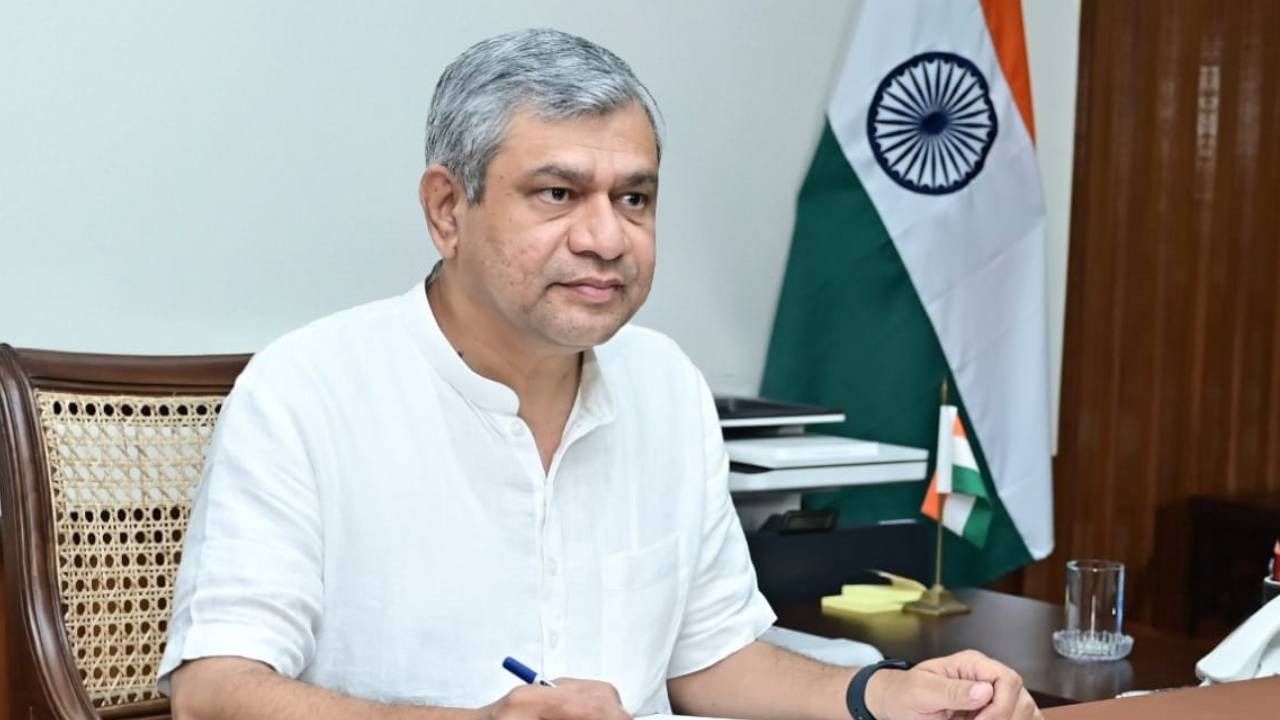The Union Cabinet on Wednesday approved two major schemes with a total outlay of Rs 14,335 crore to promote the use of electric vehicles, including buses, ambulances and trucks.
The two schemes are the PM Electric Drive Revolution in Innovative Vehicle Enhancement (PM E-DRIVE) scheme, with an outlay of Rs 10,900 crore over a period of two years, and the PM-eBus Sewa-Payment Security Mechanism (PSM) scheme, with a budget of Rs 3,435 crore.
Briefing the media about the decisions taken in the Union Cabinet, Information and Broadcasting Minister Ashwini Vaishnaw said that the PM E-DRIVE scheme is an important decision to reduce pollution.
Under the scheme, demand side subsidies/incentives worth Rs 3,679 crore have been provided for e-2W (electric two-wheelers), e-3W (electric three-wheelers), electric ambulances, electric trucks and other emerging electric vehicles.
The scheme will support 24.79 lakh e-2Ws, 3.16 lakh e-3Ws and 14,028 e-buses.
An official release said the Ministry of Heavy Industries (MHI) is introducing e-vouchers for EV buyers to avail demand incentives under the scheme. At the time of purchase of the EV, the scheme portal will generate an Aadhaar-authenticated e-voucher for the buyer.
Furthermore, PM E-DRIVE allocates Rs 500 crore for deployment of electric ambulances.
This is a new initiative by the central government to promote the use of electric ambulances for comfortable patient transportation. The performance and safety standards of electric ambulances will be formulated in consultation with the Ministry of Health and Welfare, the Ministry of Health and Welfare and other relevant stakeholders.
In addition, Rs 4,391 crore has been earmarked for procurement of 14,028 electric buses by state-run transport companies and public transport agencies.
CESL will undertake demand aggregation in nine cities with over 40 lakh population, namely Delhi, Mumbai, Kolkata, Chennai, Ahmedabad, Surat, Bangalore, Pune and Hyderabad. Inter-city and inter-state electric buses will also be supported in consultation with the states.
The statement also notes that trucks are a major contributor to air pollution. PM E-DRIVE will promote the deployment of electric trucks in the country and Rs 500 crore has been allocated to incentivise them.
The plan also addresses the range anxiety of EV buyers by promoting the large-scale installation of electric vehicle public charging stations (EVPCS).
These EVPCS would be installed in selected cities with high penetration of electric vehicles and also on selected highways. The plan proposes installation of 22,100 fast chargers for electric four-wheelers (e-4W), 1,800 fast chargers for electric buses and 48,400 fast chargers for electric two- or three-wheelers (e-2W/3W). The outlay for EVPCS will be Rs 2,000 crore.
“This entire programme will go a long way in achieving sustainable growth and ensuring that our country makes rapid progress in the EV movement,” Vaishnaw said.
The Minister informed that the PM-eBus Sewa-Payment Security Mechanism (PSM) scheme for procurement and operation of electric buses by Public Transport Authorities (PTAs) has an outlay of Rs 3,435 crore to support the roll-out of 38,000 electric buses.
“This plan will support the deployment of over 38,000 electric buses (e-Buses) from fiscal year 2024-25 to fiscal year 2028-29. The plan will support the operation of electric buses for a period of up to 12 years from the date of deployment,” according to another official statement.
Currently, most of the buses operated by PTAs run on diesel/CNG, resulting in adverse environmental impact.
On the other hand, electric buses are environmentally friendly and have lower operating costs.
However, it was anticipated that PTAs would find it difficult to procure and operate electric buses due to their high initial cost and lower revenue from operations, the statement said.
To address the high capital cost of electric buses, public transport authorities introduce them through the Public-Private Partnership model on Gross Cost Contract (GCC). PPAs are not required to pay the initial cost of the bus under the GCC model, instead OEMs/operators procure and operate electric buses for PPAs on monthly payments. However, OEMs/operators are hesitant to participate in this model due to concerns about potential payment defaults.
The PSM scheme addresses this concern by ensuring timely payments to OEMs/operators through a dedicated fund. In case of default of payments by PTAs, CESL, the implementing agency, will make necessary payments from the scheme funds, which will then be recovered by the PTAs/states/UTs, the statement added.
Earlier, the government had implemented the Faster Adoption and Manufacturing of (Hybrid and) Electric Vehicles (FAME) scheme in two phases. Around 16 lakh electric vehicles were supported under FAME 1 and FAME 2 schemes.
Disclaimer:
The information contained in this post is for general information purposes only. We make no representations or warranties of any kind, express or implied, about the completeness, accuracy, reliability, suitability or availability with respect to the website or the information, products, services, or related graphics contained on the post for any purpose.
We respect the intellectual property rights of content creators. If you are the owner of any material featured on our website and have concerns about its use, please contact us. We are committed to addressing any copyright issues promptly and will remove any material within 2 days of receiving a request from the rightful owner.

